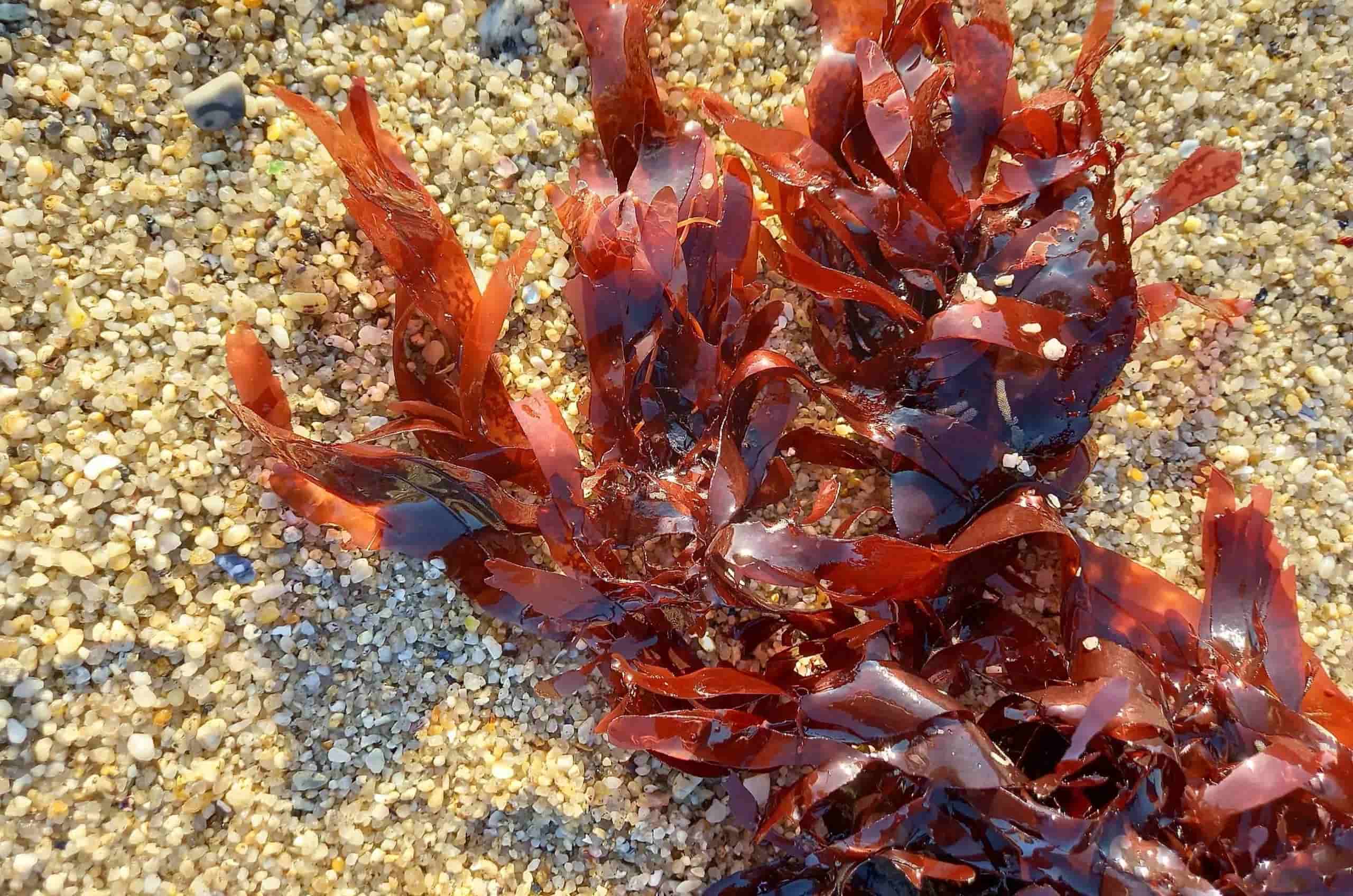
What is dulse? This red seaweed, found along the coasts of the North Atlantic and Pacific Oceans, has been a staple in coastal diets for centuries. Dulse is packed with nutrients like iodine, potassium, and protein, making it a superfood. Its unique flavor, often described as salty and umami, makes it a versatile ingredient in various dishes. Whether you enjoy it raw, dried, or cooked, dulse can add a nutritious punch to your meals. Beyond its culinary uses, this seaweed also boasts potential health benefits, including supporting thyroid function and providing antioxidants. Ready to dive into the world of dulse? Let's explore 15 fascinating facts about this incredible sea vegetable!
Key Takeaways:
- Dulse is a nutrient-packed seaweed with vitamins, minerals, and complete protein, making it a valuable addition to vegetarian and vegan diets for overall health and well-being.
- Dulse offers culinary versatility and environmental benefits, while also having a rich historical significance and potential health benefits, making it a superfood worth exploring and incorporating into your diet.
What is Dulse?
Dulse, also known as Palmaria palmata, is a type of red seaweed found along the northern coasts of the Atlantic and Pacific Oceans. It's been a staple in coastal diets for centuries due to its rich nutritional profile and unique flavor.
-
Dulse is packed with vitamins and minerals. It contains high levels of vitamins A, B6, B12, C, E, and K, along with essential minerals like iodine, iron, potassium, and calcium.
-
This seaweed is a complete protein. Dulse provides all the essential amino acids, making it a valuable protein source for vegetarians and vegans.
Nutritional Benefits of Dulse
Dulse isn't just a tasty addition to meals; it also offers numerous health benefits. Let's explore some of the key nutritional perks.
-
High in fiber, dulse aids in digestion and helps maintain a healthy gut. Fiber also supports weight management by promoting a feeling of fullness.
-
Rich in antioxidants, dulse helps combat oxidative stress and inflammation, which can reduce the risk of chronic diseases.
-
Dulse is a natural source of iodine, crucial for thyroid function. Iodine deficiency can lead to thyroid problems, so incorporating dulse into your diet can help maintain thyroid health.
Culinary Uses of Dulse
Dulse's versatility in the kitchen makes it a favorite among chefs and home cooks alike. Here are some ways to incorporate it into your meals.
-
Dried dulse flakes can be sprinkled on salads, soups, and stews for a burst of umami flavor.
-
Dulse powder can be used as a seasoning for various dishes, adding a salty, smoky taste without the need for additional salt.
-
Dulse chips are a popular snack. Simply bake or fry the seaweed until crispy for a nutritious alternative to potato chips.
Environmental Impact of Dulse
Dulse isn't just good for you; it's also beneficial for the environment. Its cultivation and harvesting have a relatively low environmental footprint.
-
Sustainable farming practices are often used to grow dulse, minimizing the impact on marine ecosystems.
-
Dulse can help reduce ocean acidification. As it grows, it absorbs carbon dioxide, which can help mitigate the effects of climate change on marine life.
Historical Significance of Dulse
Dulse has a rich history, particularly in coastal communities where it has been harvested and consumed for centuries.
-
Ancient civilizations like the Vikings and Celts consumed dulse as a vital part of their diet, relying on its nutritional benefits during long sea voyages.
-
In Irish and Scottish folklore, dulse was believed to have medicinal properties, often used to treat various ailments.
Modern Research on Dulse
Recent studies have shed light on even more potential benefits of this remarkable seaweed.
-
Anti-cancer properties have been observed in dulse. Some studies suggest that compounds in dulse may help inhibit the growth of cancer cells.
-
Heart health benefits are another area of interest. Dulse's high potassium content can help regulate blood pressure and support cardiovascular health.
-
Weight loss potential has been noted in some research. The fiber and protein content in dulse can help control appetite and promote a healthy metabolism.
Dulse: A Nutrient-Packed Sea Vegetable
Dulse isn't just another seaweed. Packed with vitamins, minerals, and antioxidants, it offers a range of health benefits. This red algae can boost your immune system, improve thyroid function, and even support heart health. Its unique flavor makes it a versatile ingredient in various dishes, from soups to salads.
Adding dulse to your diet is easy. You can find it in health food stores, either dried or in powder form. Sprinkle it on your meals, blend it into smoothies, or enjoy it as a snack. Its umami taste can enhance the flavor of many recipes.
Incorporating dulse into your daily routine can be a simple yet effective way to improve your overall well-being. Give this nutrient-dense sea vegetable a try and experience its benefits firsthand.
Frequently Asked Questions
Was this page helpful?
Our commitment to delivering trustworthy and engaging content is at the heart of what we do. Each fact on our site is contributed by real users like you, bringing a wealth of diverse insights and information. To ensure the highest standards of accuracy and reliability, our dedicated editors meticulously review each submission. This process guarantees that the facts we share are not only fascinating but also credible. Trust in our commitment to quality and authenticity as you explore and learn with us.


